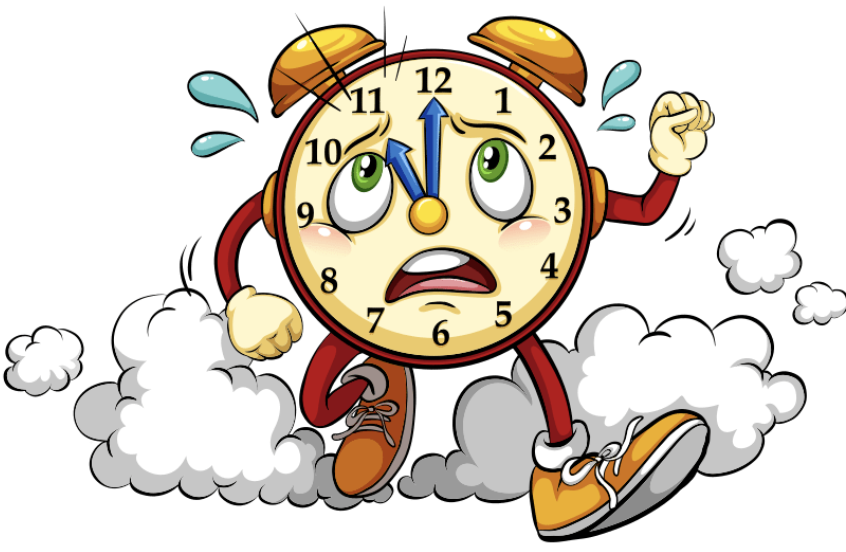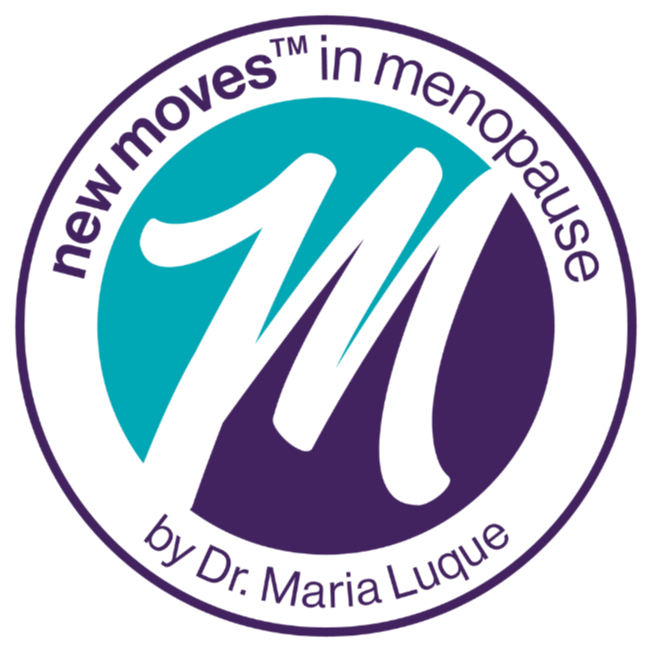It Can't Be Menopause Because...
Aug 06, 2023
“It can’t be menopause because….” That’s a sentence I hear almost every time I talk to women about the possibility that they may be experiencing menopause symptoms. In my experience, there are two prominent ways that women end this sentence, and I will dive into both here. Both of them are often used as litmus tests for perimenopause, being the ultimate deciding factor if you’re in menopause or not. Well, they are not. Welcome to the “It can’t be menopause because….” show.
It can’t be menopause because my periods are like clockwork! 
Many women believe that irregular periods are the telltale sign of perimenopause. If their cycles are still ticking like clockwork, they couldn’t possibly be on that roller coaster ride just yet. But my fellow menopausers, that is simply not true. While it’s true that fluctuations in menstrual cycles can occur, it’s not a prerequisite for this hormonal adventure. It can be, but it’s not a must. Menopause doesn’t follow a set protocol and most definitely is not like a European train schedule when you know exactly what stop you will be making, when, and where. I had regular periods way past my first anxiety attack, which was my first sign of perimenopause. I shared my own experience here.
It can’t be menopause because I took a hormone test, and it said my levels are normal! 
I find this one more infuriating than the other because it usually means that there is a health practitioner or predatory marketing involved in this. I have talked to dozens of women that said that their doctor dismissed their symptoms based only on the hormone tests, even if those women were presenting with some of the more typical menopause symptoms such as hot flashes and insomnia and were in their late 40s to early 50s. Then, there are the predatory advertisements trying to sell you tests that even predict when you will go through menopause. Slogans such as “Test If You Are Transitioning Towards Menopause From The Comfort Of Home” or “5-minute menopause test” make it sound like you can, but there is no truth to those claims. The fact is that no test will tell you when you will go through menopause because hormone levels can vary greatly daily and even during the day. Due to those high fluctuations, getting your hormone levels tested is mostly useless because the tests can’t tell you where you are in the menopause transition. But those tests are pricey, so someone is making money off of you, which is the main driving factor. Also, let’s assume that these tests do work. Would they make your experience easier or your symptoms less? The basic fact is that what is most important is your experience. If you have symptoms, let’s treat them. I can tell you that my perimenopausal anxiety was not treated differently than a pre-menopausal woman’s anxiety. Someone telling me that it’s not perimenopause does absolutely nothing! In fact, I don’t care if it’s menopause; just help me.
There are many symptoms of perimenopause, but one cluster of symptoms I consider the most concerning includes mood changes such as anxiety or feeling depressed. This category is where I found my first symptom; anxiety. It came out of nowhere and felt paralyzing. I find these symptoms the most detrimental because they often go unnoticed and underrecognized because they can be much more subtle than missing a period or having a hot flash. Women think that they are just being irrational or feeling “down,” and they don’t seek out help, or worse, they do seek out help just to be dismissed by their healthcare provider and told to “manage stress” or “relax more.” It is important to know that the menopausal transition is considered a “window of vulnerability” for the development of depressive symptoms. The fact is that a small number of women will develop clinical depression. Women with prior history of mood disorders and/or depression are at a much higher risk for developing symptoms of depression during the menopausal transition and into early postmenopause. Also, women that are estrogen-sensitive are at an increased risk. You would be considered estrogen-sensitive if you had mood differences in the last part of the menstrual cycle, post-partum, and/or perinatal. But wait, in all that warning and gloom, there is good news. There's strong evidence that physical activity, especially aerobic and intense physical activity, can help. Over the past 15 years, an abundance of studies has shown a clear inverse relationship between regular physical activity and depression. Women that exercise more tend to be more positive, have more energy, and feel better overall. Physical activity can help, but if you feel sad or don’t find enjoyment in things that usually bring you joy on most days, and those symptoms last for more than two weeks, please seek out help. That is a sign of concern.
Here are a few more of the most-often reported symptoms of menopause:
- Brain fog and the inability to remember or concentrate. (Walking into a room only to forget why you entered in the first place. Names, dates, and common words escape your memory like elusive butterflies. This happens to me all the time, and by now, most people I see regularly know that if I get stuck in a sentence, it’s because the menopausal cloud took my thought away, and it may or may not come back. In the beginning, I found this symptom almost an insult to my intelligence because, as an academic, my brain is my pride, and when it started not collaborating the same, I felt a bit betrayed. But then I just accepted it and made light of it because what else is there to do? I now trust that I’ll have more thoughts to replace the lost ones.
- Lack of energy
- Hot flushes and night sweats
The best tool to know where you are in the menopausal transition is to learn about menopause, its effects, and the symptoms and changes that may occur. Knowing your body and paying attention to what’s happening will be your absolute best indicator. Each person’s journey is unique, and the signs and timing of perimenopause will vary. So, if you suspect you might be on this thrilling hormonal adventure, trust your instincts and your body, seek guidance from healthcare professionals you trust, and know that you are not alone in this.
What was your first menopause symptom (aka the ticket to the menopausal roller coaster)? I’d love to know. Email me at [email protected]



